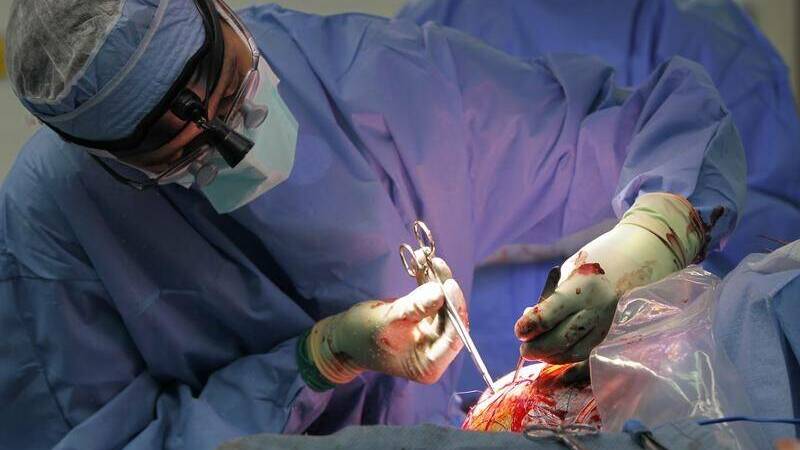
Private patients across the country could be slugged thousands of dollars more for life-changing surgery from July 1, according to Catholic Health Australia.
Nearly 500 items will be removed from the federal prostheses list, which mandates coverage, and sets the prices insurance companies have to pay private hospitals for various medical devices.
with non-invasive surgery leading the charge thanks to social media. Recorded: May 15, 2023.
The changes are part of a seven-year effort to fix the list which was allowing manufacturers to charge private hospitals exorbitant prices for medical devices.
But private hospital groups such as Catholic Health Australia (CHA) said the reforms have had unintended consequences.
ACM contacted federal Health Minster Mark Butler but did not receive a response by deadline.
A 'bizarre and indefensible' system
The prostheses list contains more than 11,000 items, from metal hip joints and pacemakers to human tissues such as bone, skin and blood vessels.
Under the previous arrangements, a government-run committee set the prices, which were often triple the price of other countries.
Grattan Institute health and aged care program director, Peter Breadon, said that arrangement had been "bizarre and indefensible".
"Those prices were set by a committee including [medical manufacturing] industry representatives with little transparency, and the resulting prices were way too high," Dr Breadon said.
The federal Labor government's reforms to the list involved gradually whittling down the gap between the price paid by public hospitals for prostheses and the inflated prices in the private system.
But in the process "general use items" - basic things such as sutures, adhesives, surgical sponges and catheters - were deemed to no longer qualify and the government decided to remove them from the list.
Rising costs, declining access to treatment
Once an item is taken off the prostheses list, insurers are no longer obliged to cover the cost. CHA chief executive Jason Kara said patients would wind up footing the bill.
"Removing the requirement for health insurers to pay for essential surgical items will inevitably push up out-of-pocket costs for thousands of private patients around the country," Mr Kara said.
Mr Kara said the unit cost for general use items was low, but some surgeries involved hundreds of sutures, clips or adhesives, which quickly added up.
The additional costs for life-changing bariatric surgery could add $4,000 to the already hefty cost of the procedure.
Breast cancer surgeries could rise by $500, while out-of-pocket costs for caesarian section procedures would rise significantly. More than 70 per cent of the surgeries affected by the changes are performed on women.
But Mr Kara said price rises were only part of the problem and the knock-on effects could limit access to such operations altogether.
"There is a real risk that treatments will be delayed and already struggling hospitals could be forced to scale back their services to reduce financial losses, especially in regional areas with smaller populations," he said.
"This will result in greater pressure on the already strained public system."
Government must 'act now'
Federal Health minister Mark Butler initially planned to remove general use items from the list on July 1, 2023, but postponed the plan by 12 months after lobbying by groups such as CHA.
The government had planned to shift the items onto a new "general use bundles" funding arrangement which would still force insurers to cover the costs. But since the postponement that plan has fallen through and the government hasn't offered an alternative arrangement.
Mr Kara said the government had "gone against its own advice and that of the private hospital sector, consumers and the AMA" by failing to put a replacement plan in place.
Dr Breadon said insurers should be covering general use items regardless of whether they were on the prostheses list.
"To my mind the insurance shouldn't you know exclude paying for things just because they've gone off this list," he said.
"In any case, the overall costs for issuers should be declining significantly because of the cost reductions in things that are on the list [because of the reforms]. So really they should be able to keep funding those things regardless."


